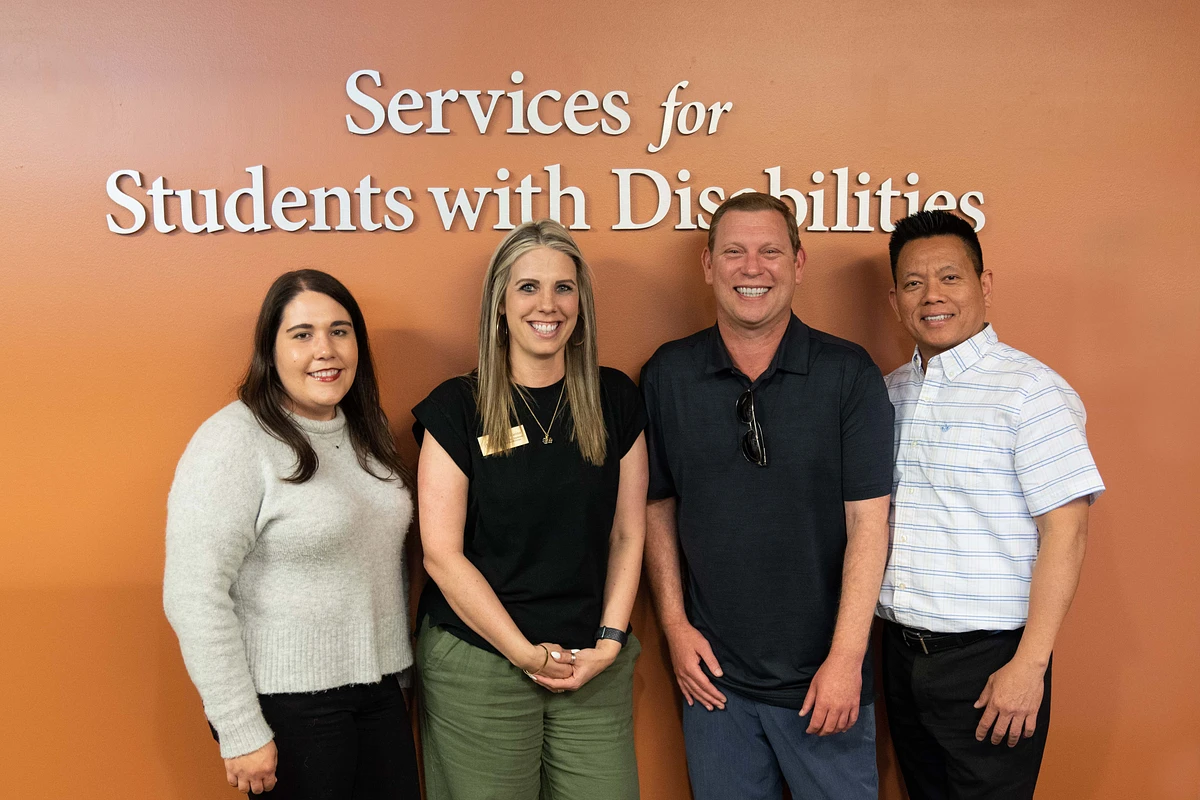At Pacific, we believe that all students should have an equitable access to their academic and college experiences. Chronic or temporary disabilities may sometimes require special accommodations, and Pacific’s Services for Students with Disabilities (SSD) work with all students to address their specific needs.
“We help remove barriers and provide accommodations, so we work with the student closely, and then we will work with faculty to notify them of such accommodations and make sure those are implemented for their courses,” said SSD director Danny Nuss.
SSD provides other direct services such as secure reduced distraction environment for proctored exams; food and water deliveries for students with chronic conditions like Type 1 or 2 diabetes; or referrals to on- and off- campus counseling and medical resources.
Maddy Moghadass ’23 is a health, exercise and sport science major at Pacific. When Moghadass was only 7 years old, her family found out she had Type 1 diabetes. Since then, she has learned to take care of herself with a daily exercise regimen and by following a specific diet, but she is aware that sometimes her blood sugar may suddenly fall or spike, for instance in a highly stressful situation like an exam session. In such emergencies, Maddy can turn to SSD for help:
“SSD helps a lot, especially with getting accommodations, if you need food during class or access to medical devices. They're pretty helpful with that, so it is easy to be diabetic on Pacific campus,” she said.
For pre-existing conditions, related either to medical or personal issues, Nuss strongly suggests that student and/or parents reach out to SSD staff well before starting college. That way, they can determine if the university can provide the necessary support and give them time to secure any additional resources or documentation.
If a condition might result in an emergency, it is especially important to let SSD staff know what to do ahead of time.
“When we're getting [students] registered, we will talk to them about what an emergency could look like, what the protocols are,” Nuss said. “Oftentimes we encourage them to write that up so that they can share that with professors and others, like the residential staff. That includes things like what to look for, what to do, some guidelines when to call 911 versus when not to call.”
In addition to working with students with certified developmental, learning, psychological and physical disabilities, SSD is also here for students who might simply need help dealing with stress and anxiety caused by a difficult exam session or being away from home. The focus of the whole SSD team is to provide student-centered services in a caring and non-judgmental way.
“We are there for [students] to advocate for them and to be that place where they can feel comfortable going, having conversations, difficult conversations, could be medical-related or personal stuff,” underlined Nuss. “We try to establish that positive rapport as quickly as possible with students and let them know that there's a place on campus that no matter what, they can always go and hopefully feel comfortable.”
Learn more by visiting Pacific’s Services for Students with Disabilities webpage.
Skip past news feed


